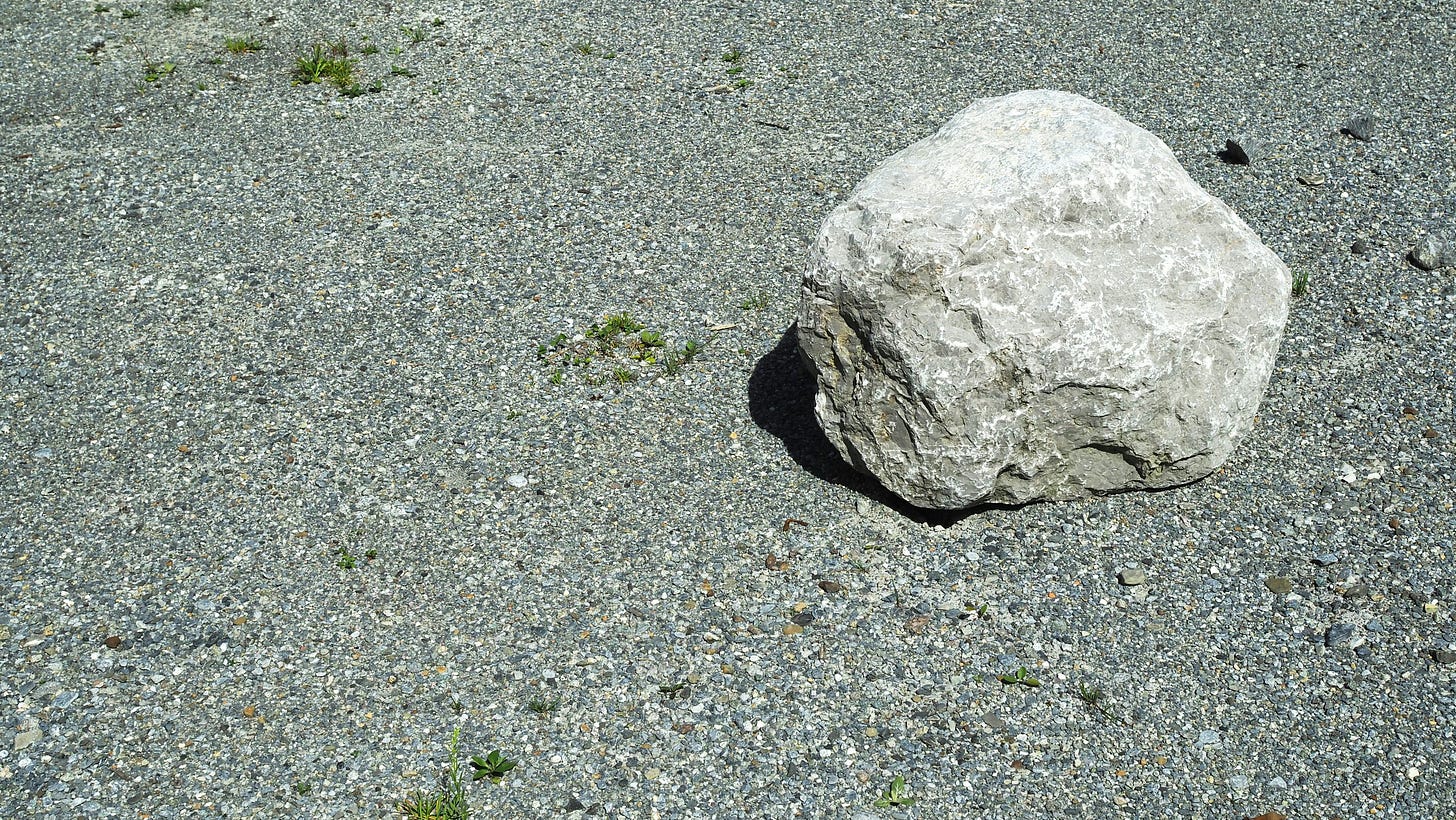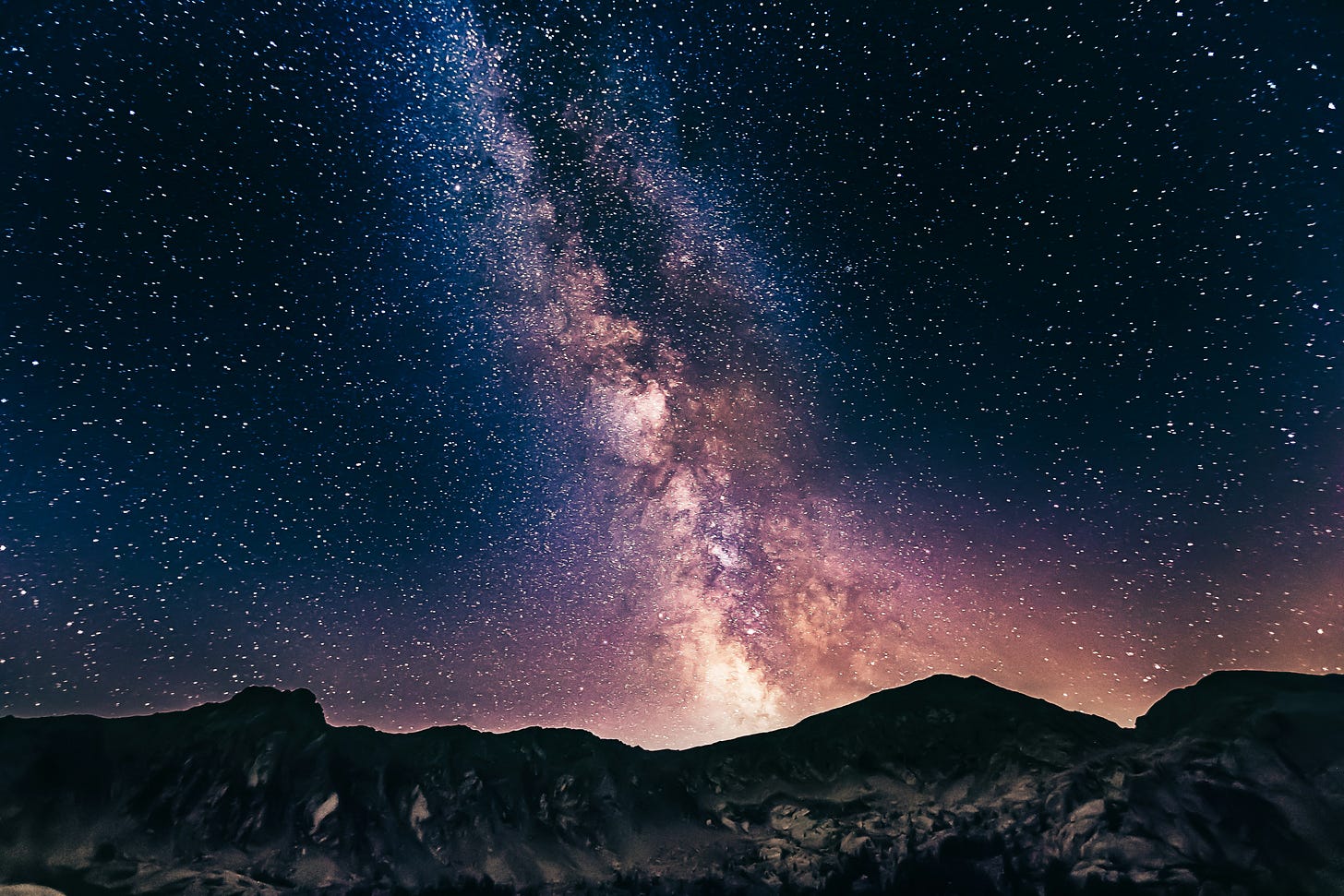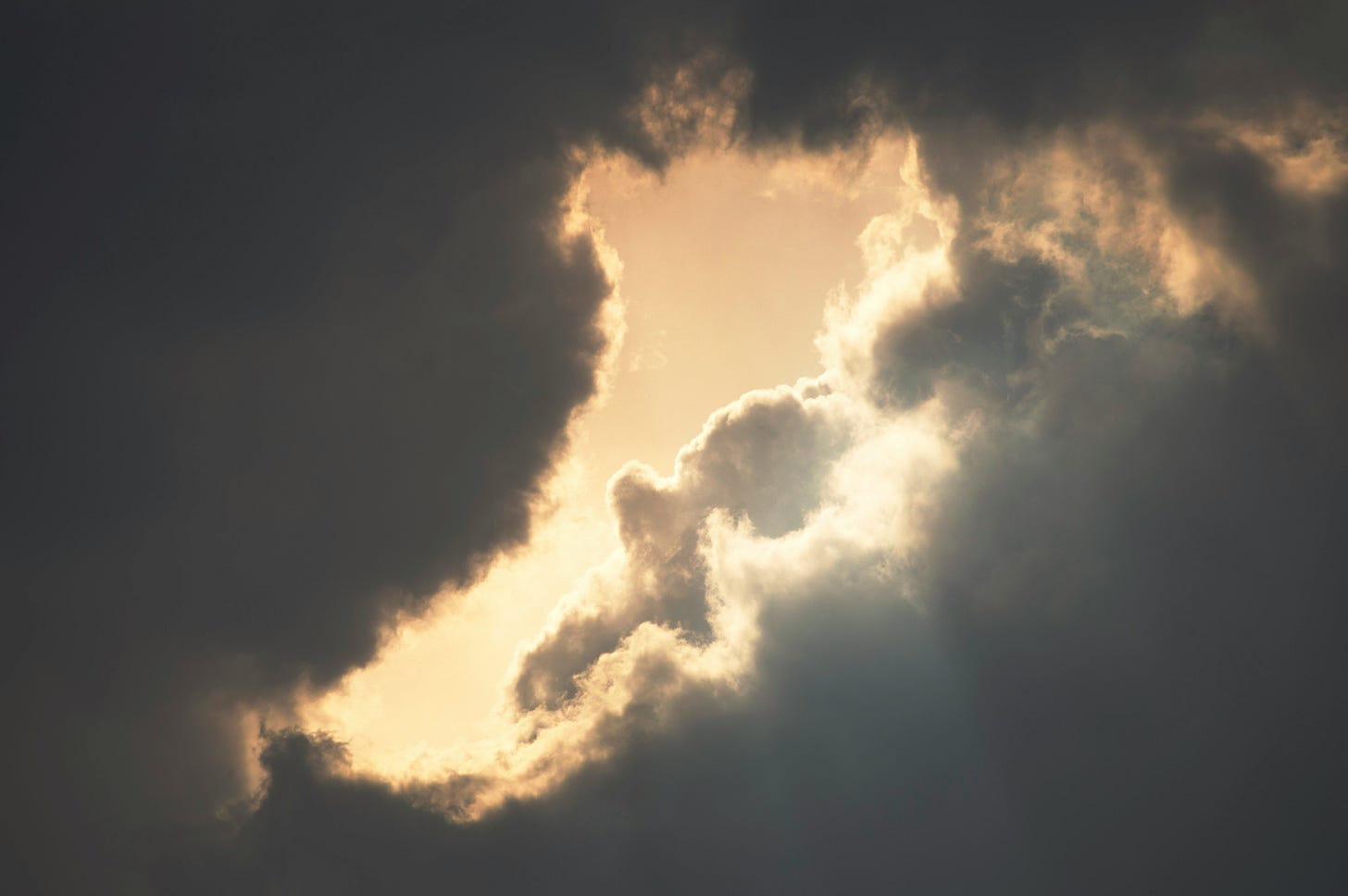See Genesis 27 and 28 for the full story.
The sky is getting dark as daylight slipped away. The only thought in his mind is putting one foot in front of the other, just a few more kilometers, and maybe he’ll feel safe. But as the sun dips beneath the horizon, he realizes that he is growing weary. Looking around, he sees that he has come to the intersection of nowhere in particular and the highway leading out of nothing-ville. But he has to stop somewhere. Yes, he is out under the night sky. Yes, there is nothing there to protect him. He has no one to stay with him, to keep watch with him, or to keep him company - although (he thinks to himself with a pained chuckle) that would be true no matter where he stopped. Now that he has paused his frantic pace, the blisters that he had ignored so far are making themselves known. He realizes he won’t get much farther, that his feet will soon refuse to put themselves one in front of the other. He figures this is as good a place to stop as any other, and he sighs as he lies down to try to sleep. He left so quickly he couldn’t pack much of anything at all, not even a sleeping bag.
The only thing around to cradle his head is a rock.
Photo by MGR Logger on Unsplash
As he lies there, exhaustion overtaking him, perhaps his mind drifts back to how he got here (which is nowhere in particular). Perhaps he recalls the wrath of his brother, who swore up and down that once their father kicked the bucket (as he seemed set to do any day now), that he would stop holding back – Esau vowed to throttle Jacob as soon as he could get his hands on him. His brother threatened to unleash on Jacob all of his fury, every bit of revenge that he deserved. Maybe even Jacob realized that he did deserve at least some of his brother’s wrath.
But probably not – Jacob wasn’t much for introspection.
He spent the better part of his life getting whatever he wanted. And if it brought trouble – oh well. He could always trust his golden tongue and talk his way out of it. And while his father had always been partial to his hard-working, game-hunting, swarthy brother, his mother usually got quite a kick out of Jacob’s antics and sided with him – further shielding him from the worst consequences of his behaviour. It was, in fact, his mother who had urged him to flee when their latest scheme had pushed his brother over the edge.
So maybe he feels a prick of remorse for taking what wasn’t his to begin with, for deceiving his father (whom he had always found a rather easy mark) when he was old and blind and on his deathbed. Perhaps he spares a thought for his brother whom he has stolen from.
But probably not.
If sleep continues to elude him, he might reason that Esau wasn’t exactly blameless. One day, his brother had returned from the hunting fields, hungry and tired, and he had given his word that if Jacob would get him something to eat – pronto – then he would be willing to part with his birthright. And Jacob had rustled up some food, but when Esau’s tummy was full and he was satisfied, he seemed to forget all about the promise that he had made (however rash it was). It wasn’t as if Esau always kept his word either – so Jacob had been genuinely surprised when his brother had flown into such a murderous rage when Jacob (with their mother’s help no less) worked over their father to get what he wanted.
Esau clearly feels cheated – but Jacob is the one out in the wilderness, fleeing his brother’s wrath. Jacob knows his father is ailing and will likely die before too long – he is going to miss paying his final respects to his father and won’t be able to help lay him to rest. He is not sure when he will see his mother again. (Spoiler alert – he will never see his mother again. He also doesn’t know that it will be at least 20 years before he returns to the place he once called home). So he tries to not let any niggling feelings of guilt over his behaviour bother him too much.
Jacob lies in the middle of the wilderness, alone in the world, a fugitive running to save his skin, unprotected, in a crisis of his own making, a rock poking into his temple. When he finally slips into a fitful sleep, that’s when the dream begins.
“He had a dream in which he saw a stairway resting on the earth, with it’s top reaching to heaven, and the angels of God were ascending and descending on it. There above it stood the Lord…”1
In the middle of the crisis that he created – God comes.
Even though he is running for his life after pulling of a heist in which he robs his brother and deceives his father – God comes.
Disconnected from his father and grandfather (his only real connections to the divine up until now) – God comes.
Away from his sacred home – God comes.
Though he is literally in the middle of nowhere – God comes.
Though he has never showed remorse, repented, or patched things up with his father or his brother – God comes.
Though he has never really shown anything but selfish ambition, fully living up to his name “heel-puller,” “grasper,” “deceiver” – God comes.
And we are left to exclaim with the astounded Jacob: “Surely the LORD is in this place, and I was not aware of it.”2
Photo by Mariam Soliman on Unsplash
Genesis 28:12-13.
Genesis 28:16.






As always Mandy--grateful for your insight and voice. You have a gift.